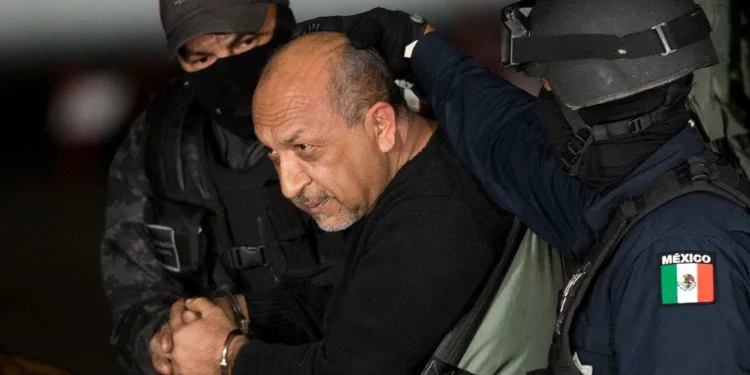In a significant cross-border enforcement move, Mexico has transferred 26 alleged high-ranking cartel members to the United States as part of a coordinated effort with the Trump administration to curb violent criminal networks and drug trafficking operations.
Those extradited include Abigael González Valencia, identified as a leader of “Los Cuinis,” a faction closely tied to the Jalisco New Generation Cartel (CJNG). Another, Roberto Salazar, is sought in connection with the 2008 killing of a Los Angeles County sheriff’s deputy. Several others reportedly have ties to the Sinaloa Cartel and other dangerous trafficking groups.
U.S. Attorney General Pam Bondi stated that each of the individuals played a role in bringing drugs and violence to American communities, adding that under the Department of Justice they would “face severe consequences” for those actions. She also thanked Mexico’s National Security team for its cooperation in the operation.
This is the second large-scale transfer in recent months, following the February extradition of 29 cartel members, including convicted drug lord Rafael Caro Quintero, implicated in the 1985 killing of a U.S. DEA agent. Both agreements were reached after the Justice Department assured that the death penalty would not be pursued against any of the transferred suspects.
U.S. Ambassador to Mexico Ronald Johnson called the move “another example of what is possible when two governments stand united against violence and impunity,” emphasizing that the transfers would make both nations safer.
The February deal came amid tense trade negotiations, when Mexican officials sought to prevent the Trump administration from imposing tariffs on imports. In late July, President Donald Trump and Mexican President Claudia Sheinbaum agreed to delay a proposed 30% tariff for 90 days to allow more time for talks.
Sheinbaum, while more willing than her predecessor to target major cartels, has also drawn a line on sovereignty, rejecting calls from U.S. leaders for military intervention inside Mexico.
Among those recently transferred is Servando Gómez Martínez, known as “La Tuta”, a former schoolteacher turned cartel boss who once led the Knights Templar group. Captured in 2015 and sentenced to 55 years in a Mexican prison in 2019, Gómez ran the cartel as a quasi-religious organization that dictated politics, commerce, and community rules in Michoacan, while carrying out acts of violence and extortion.
Abigael González Valencia, the brother-in-law of CJNG leader Nemesio Rubén “El Mencho” Oseguera Cervantes, had been in custody since 2015 after being arrested in Puerto Vallarta. The U.S. has offered a reward of up to $15 million for information leading to El Mencho’s capture. Along with his brothers, González Valencia is accused of financing the rise of the CJNG, which U.S. officials describe as one of the most powerful and violent cartels in the world, responsible for smuggling massive quantities of cocaine, methamphetamine, and fentanyl into the United States.
One of his brothers, José González Valencia, was sentenced in Washington federal court to 30 years in prison this June after pleading guilty to international cocaine trafficking. He was arrested in Brazil in 2017 while traveling under a false identity.






